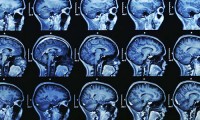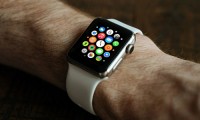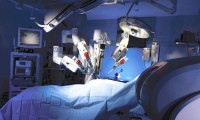-
California researchers highlight the benefits of total body scanner
- Source: biospectrumasia
- 559
- January 9, 2018
-
Next-generation medical scanning
- Source: ScienceDaily
- 522
- January 8, 2018
-
The Quantified Self, Our Wearable Future
- Source: Digital Salutem
- 1,221
- January 5, 2018
-
The Healthcare Technology Winners of 2017
- Source: hcanews
- 492
- January 1, 2018
-
Top 5 Digital Health Trends——A Look Back At 2017
- Source: forbes
- 792
- January 1, 2018
-
Google-Backed FLX Bio Scores $60M Financing
- Source: Flxbio
- 422
- December 27, 2017
-
Self-Powered Paper Patch Help Diabetics Measure Glucose During Exercise
- Source: mindsofmalady
- 498
- December 26, 2017
-
Health System CIOs Are Ready to Take mHealth to the Next Level
- Source: mhealthintelligence
- 672
- December 25, 2017
-
Clinicians still struggle to quickly access EHRs at point of care
- Source: healthcareitnews
- 474
- December 25, 2017
-
Sensor-enhanced surgical robot enables highly precise and safe spinal operations
- Source: medicalxpress
- 379
- December 22, 2017
your submission has already been received.
OK
Subscribe
Please enter a valid Email address!
Submit
The most relevant industry news & insight will be sent to you every two weeks.













